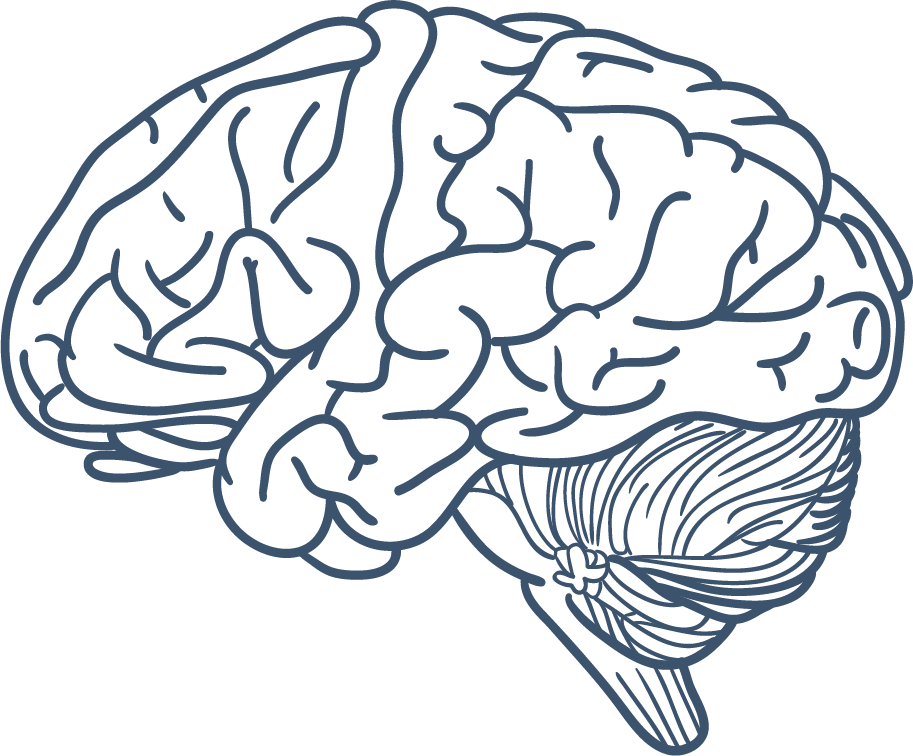

Neurofeedback Therapy + Addiction
When dealing with addiction, a person should be open to different holistic treatment methods to find what works best to help them individually. One treatment option that may be beneficial to a patient is Neurofeedback Therapy or Neurotherapy, a biofeedback therapy.

What Does Neurotherapy Involve?
Neurotherapy involves gathering data about brain activity to help treatment providers better understand what could be leading to behaviors or symptoms. Because it’s based on biofeedback, it’s sometimes called neurofeedback or NFB.
How Is It Conducted?
Sensors are attached to the head and/or neck area and connected to an electroencephalography, or EEG, machine. The machine gathers real-time data about brain activity and displays it to the therapy provider during the session. The data is also saved so clinicians can review it later if needed.
It begins with gathering a baseline data set to understand how brain activity may impact certain behaviors or conditions. You may be asked to perform different activities, such as playing video games specifically designed to stimulate certain areas of your brain. In contrast, data about brain response is recorded.
Once that initial data is gathered, sessions are conducted. At the same time, the practitioner views the current brainwave activity on the screen and provides feedback in visual or auditory cues to help the patient retrain brain activity. By changing brainwave patterns, you may be able to improve certain functions or reactions.
One benefit of Neurotherapy is that it allows a therapist or other clinician to view precise data for each individual — how your brain reacts to certain discussions and stimuli is unique to you. That helps the clinician better target treatment approaches.
It can also be used as a stand-alone method for treating some conditions, but it is more often part of a comprehensive approach when treating issues such as mental health or substance abuse disorders.
Can It Be Used in Addiction Recovery?
Individuals suffering from drug addiction have often developed dysregulated neurological pathways in their brains. The impact of many chemicals in your body is actually to alter the way your brain functions — that’s one reason for the high and other effects from drugs and alcohol. For example, some drugs change the way neurological paths in the brain deal with pain function, providing pain relief. Changes in these paths can also drive addictions.
Neurotherapy can help experts trained to read the biofeedback data pinpoint what neurological paths have been impacted by drug use or addiction. They can then help the person learn how to retrain those areas of their brain for the desired outcomes.
One of the benefits of Neurotherapy is that it can be used even when an individual is on medications. However, the practitioner may need to make certain allowances if the patient is on any medicine to impact brainwave activity.
In conjunction with medically assisted detox, cognitive-behavioral therapy is still the most popular form of therapy for treating addiction. Still, many facilities are looking for other ways to help individuals on their journey to long-term sobriety. Neurotherapy has shown positive results when applied to cases that involve substance abuse disorders.
Some Facts About Neurotherapy
Neurotherapy doesn’t hurt. In fact, other than feeling something like a sticker on your skin when the sensors are put in place, you won’t feel anything at all. Sessions are typically fairly short, sometimes lasting only 20 minutes.
The treatment works at different speeds for different people. Some individuals may see a positive outcome in a few sessions, while others need to attend dozens or more sessions. Typically, younger people tend to see faster results because the brain is still developing or has greater plasticity. How severe your addiction is can also be a factor in how long Neurotherapy takes.
Sessions can take place weekly or several times a week. If you’re undergoing therapy in an inpatient setting, your therapists and doctors will create a plan with you for treatment that will determine how many sessions you may need a week. Therapy can also be performed in outpatient settings.
Most experts don’t recommend that someone stop Neurotherapy as soon as they see an improvement. The gains you make can be lost if they aren’t fully cemented. You might think of retraining your brain in the way you would retrain your muscles to run three miles. If you stop running as soon as you can hit three miles without stopping, your body probably isn’t completely trained for consistently performing such a feat.
Once your brainwave activity has been retrained and is stable, research shows that the activity will remain that way unless something specific acts to make a change — such as a relapse in drug or alcohol use.


